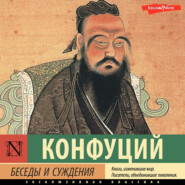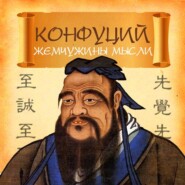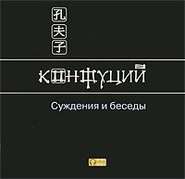По всем вопросам обращайтесь на: info@litportal.ru
(©) 2003-2024.
✖
Chinese Literature
Автор
Год написания книги
2018
Настройки чтения
Размер шрифта
Высота строк
Поля
79
The different parts of the tripitaka.
80
The different parts of the tripitaka.
81
The different parts of the tripitaka.
82
The bhikshunis are the female monks or nuns, subject to the same rules as the bhikshus, and also to special ordinances of restraint.
83
The Srâmaneras are the novices, male or female, who have vowed to observe the Shikshâpada, or ten commandments.
84
The eldest son of Sâkyamuni by Yasodharâ. Converted to Buddhism, he followed his father as an attendant; and after Buddha's death became the founder of a philosophical realistic school (vaibhâshika). He is now revered as the patron saint of all novices, and is to be reborn as the eldest son of every future Buddha.
85
The heaven of Indra or Sâkya, meaning "the heaven of thirty-three classes," a name which has been explained both historically and mythologically. "The description of it," says Eitel, "tallies in all respects with the Svarga of Brahmanic mythology. It is situated between the four peaks of the Meru, and consists of thirty-two cities of devas, eight on each of the four corners of the mountain. Indra's capital of Bellevue is in the centre. There he is enthroned, with a thousand heads and a thousand eyes, and four arms grasping the vajra, with his wife and 119,000 concubines. There he receives the monthly reports of the four Mahârâjas, concerning the progress of good and evil in the world," etc., etc.
86
Buddha's mother, Mâyâ and Mahâ-mâyâ, died seven days after his birth.
87
Anuruddha was a first cousin of Sâkyamuni, being the son of his uncle Amritodana. He is often mentioned in the account we have of Buddha's last moments. His special gift was the "heavenly eye," the first of the six "supernatural talents," the faculty of comprehending in one instantaneous view, or by intuition, all beings in all worlds.
88
This was Brahma, the first person of the Brahmanical Trimurti, adopted by Buddhism, but placed in an inferior position, and surpassed by every Buddhist saint who attains to bodhi.
89
A note of Mr. Beal says on this:—"General Cunningham, who visited the spot (1862), found a pillar, evidently of the age of Asoka, with a well-carved elephant on the top, which, however, was minus trunk and tail. He supposes this to be the pillar seen by Fâ-hien, who mistook the top of it for a lion. It is possible such a mistake may have been made, as in the account of one of the pillars at Srâvasti, Fâ-hien says an ox formed the capital, whilst Hsüan-chwang calls it an elephant."
90
These three predecessors of Sakya-muni were the three Buddhas of the present or Mahâ-bhadra Kalpa, of which he was the fourth, and Maitreya is to be the fifth and last. They were(i) Kra-kuchanda, "he who readily solves all doubts"; a scion of the Kasyapa family. Human life reached in his time forty thousand years, and so many persons were converted by him. (2) Kanakamuni, "body radiant with the color of pure gold"; of the same family. Human life reached in his time thirty thousand years, and so many persons were converted by him. (3) Kasyapa, "swallower of light." Human life reached in his time twenty thousand years, and so many persons were converted by him.
91
This would seem to be absurd; but the writer evidently intended to convey the idea that there was something mysterious about the number of the topes.
92
This was, probably, in A.D. 405.
93
Explained by "Path of Love," and "Lord of Life." Prajâpati was aunt and nurse of Sâkyamuni, the first woman admitted to the monkhood, and the first superior of the first Buddhistic convent. She is yet to become a Buddha.
94
Sudatta, meaning "almsgiver," was the original name of Anâtha-pindika, a wealthy householder, or Vaisya head, of Srâvasti, famous for his liberality. Of his old house, only the well and walls remained at the time of Fâ-hien's visit to Srâvasti.
95
The Angulimâlya were a sect or set of Sivaitic fanatics, who made assassination a religious act. The one of them here mentioned had joined them by the force of circumstances. Being converted by Buddha, he became a monk.
96
Ârya, meaning "honorable," "venerable," is a title given only to those who have mastered the four spiritual truths:—(i) that "misery" is a necessary condition of all sentient existence; this is duhka(ii) that the "accumulation" of misery is caused by the passions; this is samudaya(iii) that the "extinction" of passion is possible; this is nirodhaand (iv) that the "path" leads to the extinction of passion; which is marga. According to their attainment of these truths, the Aryas, or followers of Buddha, are distinguished into four classes—Srotâpannas, Sakridâgamins, Anâgâmins, and Arhats.
97
Hsüan-chwang does not give the name of this murderer; see in Julien's "Vie et Voyages de Hiouen-thsang "—"a heretical Brahman killed a woman and calumniated Buddha." See also the fuller account in Beal's "Records of Western Countries," where the murder is committed by several Brahmacharins. In this passage Beal makes Sundari to be the name of the murdered person. But the text cannot be so construed.
98
A devâlaya is a place in which a deva is worshipped—a general name for all Brahmanical temples.
99
Their speech was somewhat unconnected, but natural enough in the circumstances. Compare the whole account with the narrative in 1 Samuel v. about the Ark and Dagon, that "twice-battered god of Palestine."
100
The Lichchhavis of Vaisâlî had sent to the young prince a very fine elephant; but when it was near Kapilavastu, Deva-datta, out of envy, killed it with a blow of his fist. Nanda (not Ânanda, but a half-brother of Siddhartha), coming that way, saw the carcass lying on the road, and pulled it on one side; but the Bodhisattva, seeing it there, took it by the tail, and tossed it over seven fences and ditches, when the force of its fall made a great ditch.
101
They did this, probably, to show their humility, for Upâli was only a Sűdra by birth, and had been a barber; so from the first did Buddhism assert its superiority to the conditions of rank and caste. Upâli was distinguished by his knowledge of the rules of discipline, and praised on that account by Buddha. He was one of the three leaders of the first synod, and the principal compiler of the original Vinaya books.
102
The Srotâpannas are the first class of saints, who are not to be reborn in a lower sphere, but attain to nirvŕna after having been reborn seven times consecutively as men or devas. The Chinese editions state there were one thousand of the Săkya seed. The general account is that they were five hundred, all maidens, who refused to take their place in king Vaidurya's harem, and were in consequence taken to a pond, and had their hands and feet cut off. There Buddha came to them, had their wounds dressed, and preached to them the Law. They died in the faith, and were reborn in the region of the four Great Kings. Thence they came back and visited Buddha at Jetavana in the night, and there they obtained the reward of Srotâpanna.
103
Fâ-hien does not say that he himself saw any of these white elephants, nor does he speak of the lions as of any particular color. We shall find by and by, in a note further on, that, to make them appear more terrible, they are spoken of as "black."

















